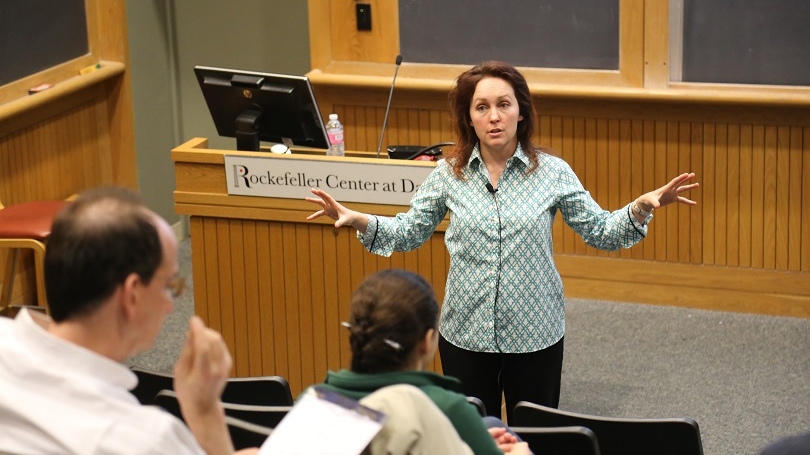
- Public Policy
- Leadership
- Funding
- News & Events
- About the Center
Back to Top Nav
Back to Top Nav
Back to Top Nav
Back to Top Nav
Since Edward Jenner created the world’s very first vaccine in the late eighteenth century, vaccines have become a widely accepted and important part of medical practice, to the point of achieving nearly taken-for-granted status. Indeed, one would be hard-pressed to find a Dartmouth College student who has never had a vaccine; certain vaccinations are often required before enrolling at school or going abroad, a testament to how commonplace vaccines have become. Despite their near ubiquity in the United States, however, vaccines generally have not featured prominently in daily conversations or considerations — until now.
In recent years, vaccines have become the target of criticism. In particular, vaccines have been accused of causing mental conditions, such as autism, in young children. Consequently, parents are increasingly choosing not to vaccinate their children against the advice of medical professionals. This strong conviction that vaccines cause harm has resulted in a relatively new phenomenon: the vaccine court. The vaccine court is a small, special court in the Court of Federal Claims that handles controversial claims that a vaccine has harmed someone. In this court, lawyers, judges, doctors, and scientists come together, sometimes bitterly arguing, to determine whether a vaccine really caused a plaintiff’s medical problem.
The Nelson A. Rockefeller Center welcomed Professor Anna Kirkland, J.D., Ph.D. on May 2, 2017 for an engaging lecture on vaccine courts and the law and politics of injury. Professor Kirkland presented the findings of her new book, Vaccine Court: The Law and Politics of Injury, and her perspective on the core question of her research: how do we come to recognize vaccine injuries? She argued that our political and legal response to vaccine injury claims shows how legal institutions can handle specialized scientific matters. Her talk illuminated the vaccine debate currently going through the vaccine court, contemporary vaccine controversies in the United States, and the social movements, scientific evidence, and legal issues that shape and seek to address them.
Anna Kirkland is an Arthur F. Thurnau Professor, Associate Professor of Women’s Studies and Political Science, and Associate Director of the Institute for Research on Women and Gender (IRWG) at the University of Michigan. As an author, she has written Fat Rights: Dilemmas of Difference and Personhood and co-editor with Jonathan Metzl of Against Health: How Health Became the New Morality. In her latest book, Vaccine Court: The Law and Politics of Injury, Kirkland explores how activists and government actors come to know, identify, and compensate for vaccine injuries, and what recent debates over vaccine safety reveal about democratic engagement with volatile scientific questions in the contemporary United States. Recent articles include “Power and Persuasion in the Vaccine Debates: An Analysis of Political Efforts and Outcomes in the States, 1998-2012,” “Credibility Battles in the Autism Litigation,” “The Legitimacy of Vaccine Critics: What’s Left after Autism?,” and “The Environmental Account of Obesity: A Case for Feminist Skepticism.” Kirkland will be expanding on her work using a National Science Foundation grant to study the organizational handling of rights claims against sex discrimination in health care settings under the Affordable Care Act.
Submitted by Nicole Simineri ’17, Rockefeller Center Student Program Assistant for Public Programs
The views and opinions expressed and any materials presented during a public program are the speaker’s own and do not necessarily represent the views and opinions of the Rockefeller Center or constitute an endorsement by the Center.